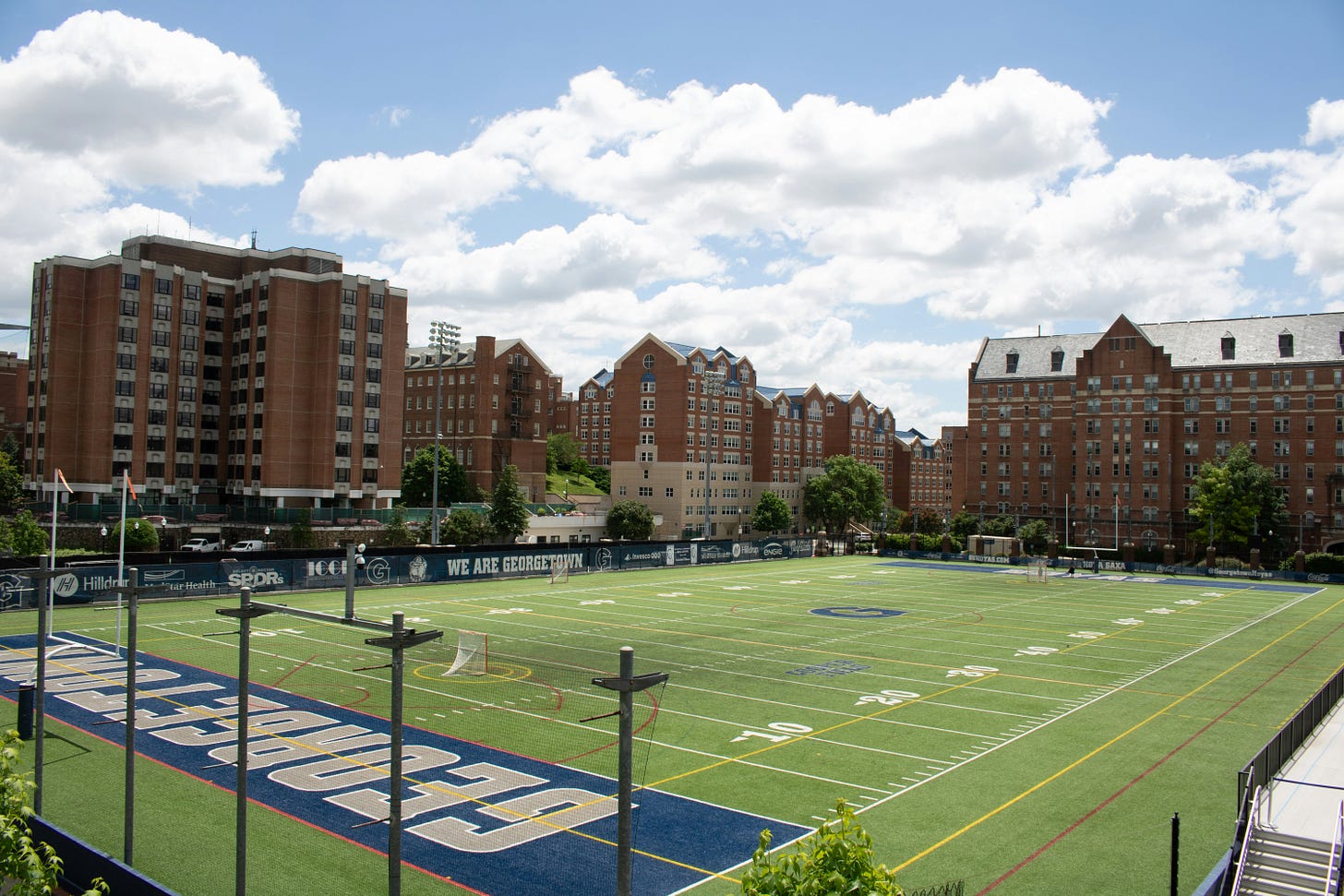Georgetown Celebrates Quarter Century of Muslim Life on Campus
Georgetown University marked a significant milestone this fall, commemorating 25 years since establishing the first full-time Muslim chaplaincy at a U.S. university. The celebration highlights Georgetown's pioneering role in fostering religious diversity and interfaith dialogue on American college campuses.
In 1999, Georgetown hired Imam Yahya Hendi as its first full-time Muslim chaplain, setting a precedent for other institutions nationwide. Over the past quarter-century, Hendi has led the Office of Muslim Life, providing spiritual guidance, educational programming, and religious support for the university's growing Muslim community.
"Muslim Life is a community rich in history at Georgetown," said Joseph Ferrara, senior vice president and chief of staff, at a November event celebrating the anniversary. "Over the last quarter century, it has supported our students' personal and spiritual formation. It has symbolized our shared commitment to inclusion and the importance of faith in our community. And it has modeled what interfaith dialogue can look like across our campuses."
A Milestone in Campus Diversity
The establishment of the Muslim chaplaincy at Georgetown reflects a broader trend of increasing religious diversity on American college campuses. According to a study by the Pew Research Center, the Muslim population in the United States has grown significantly over the past two decades, with young Muslims increasingly seeking higher education opportunities.
Georgetown's initiative has inspired other institutions to follow suit. Today, numerous universities nationwide have Muslim chaplains, though Georgetown remains at the forefront of this movement.
Expanding Muslim Life on Campus
Under Hendi's leadership, the Office of Muslim Life has expanded its services and facilities. A significant achievement came in 2023 when Georgetown opened the Yarrow Mamout Masjid, the first purpose-built mosque on a U.S. college campus. This state-of-the-art facility includes ablution stations, a spirituality and formation hall, and a halal kitchen.
"The masjid provides a space for reflection, prayer, community, and interfaith dialogue for Muslim and non-Muslim students at Georgetown," Hendi explained. This development underscores Georgetown's commitment to supporting its diverse student body and promoting interreligious understanding.
Impact on Student Life
The presence of a robust Muslim Life program has had a profound impact on Georgetown students. Tabshir Forkan, a senior, shared his experience: "To come here and not lose that space and not lose that community—only to find a new community and new friends to be around—has been incredibly powerful. It has only helped me progress and connect more with my faith."
The Office of Muslim Life organizes yearly activities, including Jum'ah prayers, retreats, Quranic study circles, and interfaith events. These programs support Muslim students and educate the broader campus community about Islamic traditions and values.
Anniversary Celebrations and Alumni Success
To mark the 25th anniversary, Georgetown hosted a dinner on November 16. The event brought together university leaders, faculty, alumni from around the world, students, and members of the Washington, DC, Muslim community. It celebrated the achievements of Muslim Life at Georgetown and its impact on generations of students.
The university also organized career panels featuring successful alumni who have contributed significantly in various fields. Notable participants included Asma Mirza, chief performance officer for the state of Maryland, and Zia Faruqui, the first Muslim judge appointed to the District of Columbia's federal court.
Looking Ahead: The Future of Muslim Life at Georgetown
As Georgetown's Muslim community grows, the university remains committed to supporting its needs and fostering an inclusive environment. The success of the Muslim Life program over the past 25 years serves as a model for other institutions seeking to enhance religious diversity and promote interfaith understanding on their campuses.
Imam Hendi expressed optimism about the future: "We are better at what we do if we can build a strong community where everyone feels at home, where no one feels excluded, no one feels judged." This philosophy continues to guide the development of Muslim Life at Georgetown, ensuring its relevance and impact for years to come.
As universities across the United States grapple with issues of diversity and inclusion, Georgetown's 25-year journey in supporting Muslim life on campus offers valuable lessons and inspiration. Celebrating this milestone honors the past and sets the stage for continued growth and innovation in fostering a welcoming environment for students of all faiths.



